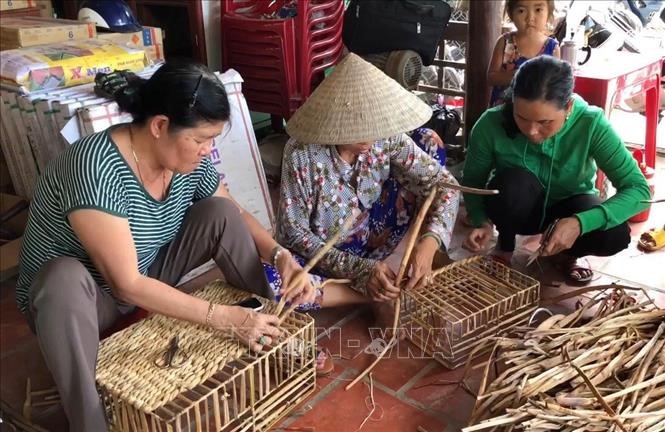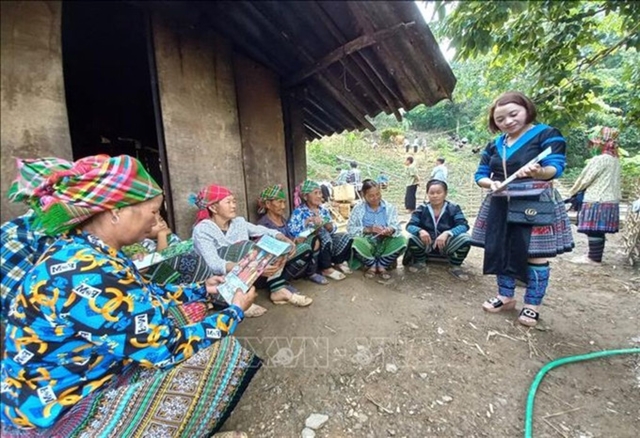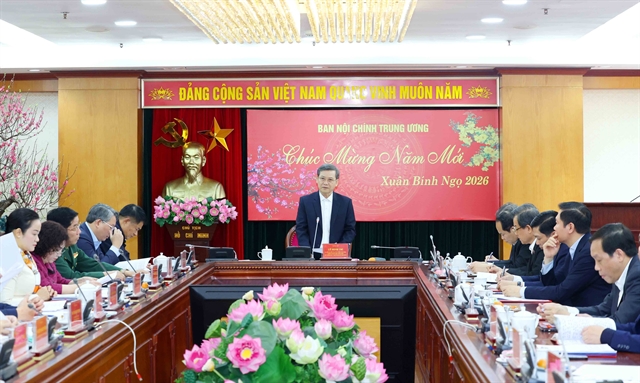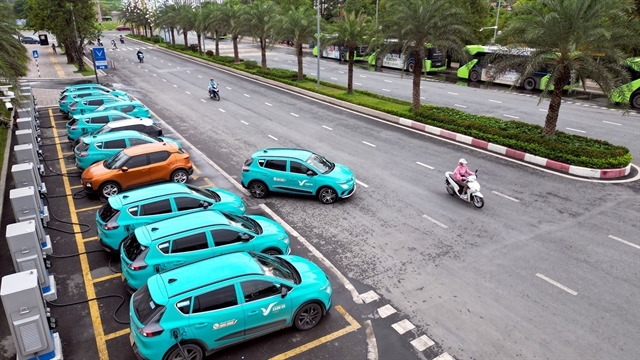 Society
Society

The Mekong Delta city of Cần Thơ plans to provide vocational training to at least 30,000 people by 2020, 10 per cent of them poor, ethnic minority and rural people whose lives are affected by industrial and other projects.
 |
| The Mekong Delta city of Cần Thơ plans to provide vocational training to at least 30,000 people by 2020. —VNA/VNS Photo Thanh Sang |
CẦN THƠ — The Mekong Delta city of Cần Thơ plans to provide vocational training to at least 30,000 people by 2020, 10 per cent of them poor, ethnic minority and rural people whose lives are affected by industrial and other projects.
Of the 30,000 to be trained, 80 per cent would get jobs afterwards, authorities said.
Trần Thị Xuân Mai, director of the provincial Department of Labour, Invalids and Social Affairs, said training provided to rural people usually met their actual needs in terms of occupations.
This year 123 courses had been organised to train people in 30 agricultural and non-agricultural occupations to enable people to work in handicraft villages, industrial parks and export processing zones, and trainees had got jobs at companies based in the city or started their own business to escape poverty, she said.
According to the Cần Thơ e-newspaper, Võ Minh Chính, head of the department’s labour, invalids and social affairs division in Cờ Đỏ District, said weaving courses attracted many locals.
Nguyễn Vi Kim Thu, head of the Women’s Union in Trung Thạnh commune’s Thạnh Phước 2 Village, said many women who attended the course were able to earn an extra income by weaving in their free time.
Cao Văn Sơn in the district’s Thạnh Hưng 2 Village said he attended a five-month electrician’s training course last year.
Afterwards he has been operating an electrical repair shop at home, earning some VNĐ4 million (US$171) a month on top of his income from farming, according to an online newspaper published by the Ministry of Labour, Invalids and Social Affairs.
He said demand for electrical repairs in his neighbourhood was very high, with many people coming around to have fans and light bulbs repaired.
Many people in Cờ Đỏ District have also benefited from training in rice-growing techniques.
Phương Tuấn Tiền of the district’s Thạnh Lợi Village, who attended a course, said thanks to it he was able to earn more than VNĐ900 million ($38,560) a year from his four hectares of paddy. He has been recognised as an outstanding farmer.
The city’s steering committee for a project to provide vocational training in rural areas said it focused on improving quality, just learning about skills that local people need was essential.
Nguyễn Thanh Dũng, vice chairman of the Cần Thơ People’s Committee, said the city focused on training human resources in rural areas based on local strategies and socio-economic development plans.
He instructed the departments of Labour, Invalids and Social Affairs and Education and Training to co-operate with each other to achieve the project’s goals.
As of last September the city had trained more than 7,000 people in its rural areas and nearly 75 per cent of them have got jobs.
The training schools update their programmes to meet employers’ needs and use modern equipment for training.
To provide jobs to trainees, the city has set up many small co-operatives in various localities, including for making sewing products in Xuân Thắng and Trường Thắng communes in Thới Lai District and making handbags in Cái Răng District’s Lê Bình Ward.
Meanwhile, vocational training schools have various programmes to attract trainees and also send them to companies to work for hands-on training. — VNS




